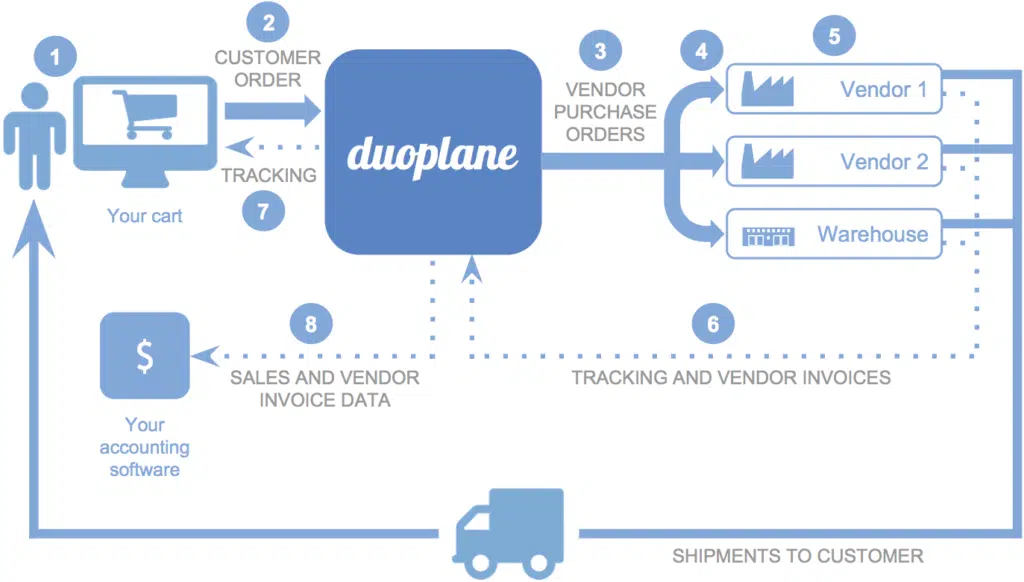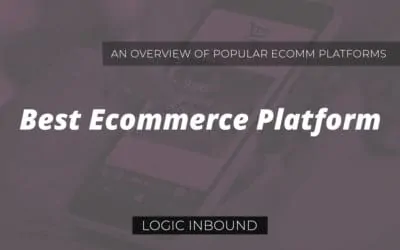What is E-Commerce Automation?
It’s important to first understand that marketing automation has been an essential tactic to increase productivity and accelerate organizational growth for many years. E-Commerce automation is essentially applying the same principles to e-commerce. E-Commerce automation tools and software aim to give users the tools they need to eliminate time-consuming tasks unique to an online store.
The incredible power of already-existing marketing automation comes from the human time it frees up. Without automation, sprawling companies can end up spending hours upon hours of skilled human resources every day on mundane and repetitive tasks that take only a few minutes to complete. Yet, when added together, these tasks represent a huge amount of time.
E-commerce automation is the natural next step. It recognizes the incredible opportunity to free up more time for work by automatically taking care of repetitive tasks.
Can I Use E-Commerce Automation With My Online Store?
Comprehensive e-Commerce automation is available for a wide variety of common e-commerce platforms through services like Duoplane, including Shopify, BigCommerce, Magento, and Amazon. They’re particularly focused on making it easy to grow and manage businesses focused on drop shipping.
Note: If you’re still deciding on which eCommerce platform to use, then check out our guide to the pros and cons of the best commerce platforms.

Other ways of automating e-commerce business processes often involve a patchwork combination of different tools, apps, and integrations. We’ll get into why people do this in the next section.
Note: If you’re just getting started, check out our resources for drop shipping
How Much Does E-Commerce Automation Software Cost?
Comprehensive automation solutions like Duoplane start at $250 per month or more, which can be too high for starting entrepreneurs to afford. They’re generally aimed at more “Enterprise level” customers with strong existing revenue streams.
This is part of why many e-commerce businesses and solopreneurs that are just starting out will rely on integrations from multiple separate, free, or low-cost apps instead.
However, with the release of Shopify’s new “Shopify Flow” tool for Shopify Plus users, an affordable comprehensive e-commerce automation embedded directly into the store platform may finally be within reach.
Read this guide to Shopify Flow to figure out if that solution is the right one for you: https://www.logicinbound.com/what-is-shopify-flow-a-new-ecommerce-automation-marketing-tool-for-shopify-plus-members/
What Are the Best E-Commerce Automation Tools & Software?
As mentioned above, automating e-commerce on a large scale with a single solution can be prohibitively expensive.
What most solopreneurs and new online store owners will do instead is create a network of integrations using apps, services, tools, and software like these:
- Oberlo
- Drip — Learn more about marketing automation in this guide
- MailChimp — To Learn more about Mailchimp and email automation, check out these strategies.
- Loyalty Points by Bold
- Product Reviews Addon by Stamped.io
- Zendesk
- Printful — Read our Printful Review
- Consistent Cart
- Google Alerts
- Kit CRM
- IFTTT
- Buffer
Note: In some cases, like t-shirt fulfillment there are specialty apps designed for just this specific type of product
While it may seem like a hassle to combine so many different services, it may be the only option for some businesses until they scale up. That said, as mentioned previously, tools like “Shopify Flow” are starting to break down the barriers to effective automation for smaller e-commerce businesses. If you’re using Shopify, we suggest reading this guide in order to see if Shopify Flow is right for you.
Need to build your e-commerce business? Having trouble with organic search visibility or converting visitors into customers? Logic Inbound is an SEO and web design marketing agency with e-commerce expertise that can help drive real sales with unmatched ROI. Fill out our discovery form and find out what we can do for your business.



0 Comments